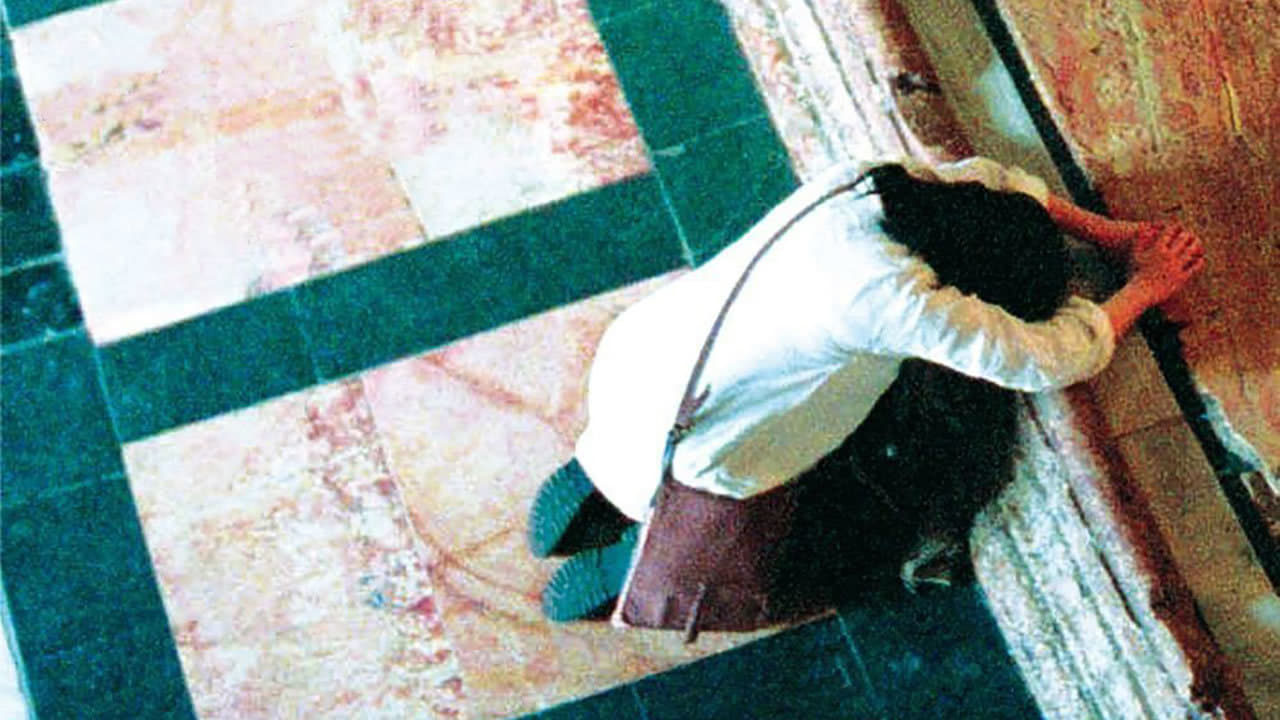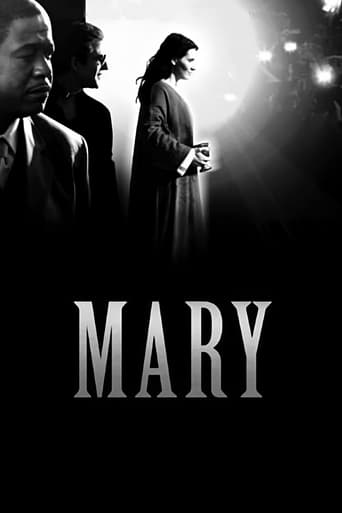MamaGravity
good back-story, and good acting
Livestonth
I am only giving this movie a 1 for the great cast, though I can't imagine what any of them were thinking. This movie was horrible
Brendon Jones
It’s fine. It's literally the definition of a fine movie. You’ve seen it before, you know every beat and outcome before the characters even do. Only question is how much escapism you’re looking for.
Claudio Carvalho
After the conclusion of the shooting of the polemic movie "This Is My Blood" about the life of Jesus performing the role of Maria Magdalene, the successful actress Marie Palesi (Juliette Binoche) feels obsessed by the life of her character and decides to stay in Jerusalem in a quest of faith and self-knowledge to fulfill the emptiness of her life. The selfish and egocentric director Tony Childress (Matthew Modine) returns to New York, where he meets the atheist host of a famous TV show Ted Younger (Forest Whitaker) in the prescreening of his movie. Ted is presenting a series of programs about the life of Jesus Christ and invites Tony to participate as a guest in his show. Meanwhile, Ted has one night stand with Tony's assistant and his upset wife Elizabeth Younger (Heather Graham) has problems with her pregnancy having an early delivery. When the desperate Ted sees the pain of his wife and his premature newborn son, he regrets and feels the need to pray for his beloved family.Abel Ferrara usually uses Catholic icons in his movies; however, "Mary" is specifically about elements of the Catholicism, such as faith, guilty, sin, love and regret. The story is very well acted by Forest Whitaker, Juliette Binoche and Matthew Modine; however, the screenplay is confused and something is missing to make "Mary" a great movie. Nevertheless, it is an original story and does not disappoint. My vote is six.Title (Brazil): "Maria" ("Mary")
dromasca
It is really hard to understand what kind of message this film is supposed to convey. We have several threads of story that start and seem to lead nowhere. Juliette Binoche is an actress who after acting as Mary in a film about the life of Jesus is struck by religious fervor and apparently starts identifying herself wit the the Bible character. Forest Whitaker is a religious TV host who does not seem to care to much about God, but when disaster strikes his personal life he remembers Him and starts praying and believing - are we supposed to believe as viewers that this sincere? The film about Jesus starts some kind of controversy which seems to refer to Mel Gibson, but the real Mel Gibson as much as I may not like him is certainly sincere in his beliefs, and does not look like the cynical character in this film. Although 'Mary' lasts only 83 minutes the screen time is too long, so it is filled up with scenes of the biblical story (from the film in the film, or trying to convey some confuse metaphor? who cares?) and an episode of a Jewish Passover celebration in Jerusalem interrupted by an act of terror with no connection whatever with the rest of the story.It is hard to grasp why this film was made, what is it really trying to say and why actors like Juliette Binoche and the now-Oscared Forest Whitaker got involved with it. They act well, but it's wasted talent. Unless you are a fan of Bible inspired films, there is no good reason to spend the time seeing it.
Argemaluco
During the 80's and 90's,director Abel Ferrara was one of the leaders of the independent cinema making amazing films which challenged the spectator.But,his recent works are far away from his previous works.New Rose Hotel and R Xmas were a little bit disappointing but they were interesting experiments.But,I do not know what was Ferrara thinking when he was making Mary,a tedious and boring movie and,by my point of view,a huge let down in his career.During 83 minutes,the movie shows us three stories which are totally boring and uninteresting.I think Ferrara wanted to make an analysis about the religion but,still with that,I think he had to do a better work to make a coherent connection between the stories.For me,it is very disappointing that Ferrara,who made excellent films with very little resources(like,for example,Bad Lieutenant,The Addiction,Ms.45 and The Body Snatchers),was behind this crap.I hope Mary is only an unexplainable false move in Ferrara's career and that,he will get redeemed soon.But I cannot recommend Mary,which is a tedious film.
Pascal
I really enjoyed the actors playing, however I think the movie could have spend more time on most of the interesting subjects it only "listed". During all the movie, I really enjoyed it, but when it finished I thought "That's all ?" and found that it was in fact quite empty. Nothing about what was the life for women at the time of Jesus, about interesting ideas which leaded Mary to drop her career, ...I really think this movie would have been really great with 30 more minutes and more stuff to make us think about the ideas it "lists".However I think it's beautiful and interesting enough, so you should go and see it :)

